Bringing Tourism to Clarksdale
A Story from the Heart
Photos and Text by Tim Kendall

This article is the first in a series by Tim Kendall, a blues enthusiast and photographer from the United Kingdom, who, along with musician Bill Barth in the 1990s, purchased “The Crossroads” bar in Clarksdale, Mississippi from Mt. Zion Memorial Fund founder Raymond “Skip” Henderson. Click HERE to read the second part of the series.
I was sitting in Bill Barth’s apartment in Amsterdam one day when he received a package from Skip Henderson, an old friend of his in The United States. The package contained mostly packs of guitar strings and Skip was asking if Bill could market them for him in Europe.
Bill Barth was born to a Jewish family from Queens New York in 1942. Having fallen in love with pre-war Country Blues recordings, in the late 50s and early 60s, Bill had taught himself to be an exceptional guitar player and then performed in the bars and coffee houses of Greenwich Village, at the same time Bob Dylan was making a name for himself in the same venues. It soon occurred to Bill and a handful of other enthusiasts that some of their musical heroes on those heavy old, shellac 78s, might still be alive. Bill decided to go south in search of those early recording artists.
In 1964, along with fellow musicians and blues enthusiasts John Fahey and Henry Vestine, Barth tracked down 1930s blues legend Nehemiah “Skip” James in a hospital in Tunica, Mississippi. According to blues scholar Stephen Calt, the “rediscovery” of both James and Son House at virtually the same time was the start of the blues revival in the United States.
Bill moved to Memphis around this time and as well as continuing his search for pre-war musicians and old recordings he also co-founded the Memphis Country Blues Society. This was a non-profit organization dedicated to the preservation and promotion of the Delta blues. The organization produced five festivals between 1966 and 1970 featuring artists such as Furry Lewis, Gus Cannon, Bukka White, Sleepy John Estes, Yank Rachel and Fred McDowell. Bill had a deep love for and grasp of the Blues, both technically and in his soul.
I say mostly packs of guitar strings because the package also contained a thick envelope full of 6 X 4 glossy photographs of a bar in the Mississippi Delta, in Clarksdale Mississippi in fact. Bill tossed the envelope to me after taking a look himself.
From the front door the bar was long and narrow, about 60 by 30 feet. On the left-hand side from the door, under a map of Mississippi carved out of the plaster showing the brick, was a row of iconic red vinyl banquets facing each other over aluminium edged tables. Across, on the other side was a narrow stage. The wall behind the stage was painted sky blue, a giant cotton boll slap bang in the middle and Clarksdale Mississippi written large on either side,
“Hey Tim, you wanna buy this bar with me; it’s eight thousand dollars.”
“Sure Bill, let’s do it.”
I’d met Bill Barth in my wife’s co-owned restaurant a couple of years before, so he may have been under the impression that I knew something about the hospitality business.
I did not. I was a photographer.
That was early in 1996, some months later, after Bill had been over and sorted out actually buying the business from Skip, I found myself flying into Memphis in the first week of December from Amsterdam, my first ever visit to the United States.
Back then, before climate change had really got a grip, winters in the Netherlands were cold. Skating on canals, snow, slush and ice everywhere cold. Walking out of the doors of Memphis Airport at 7pm in December into 75° Fahrenheit and 95% humidity was a bit of a shock.
I had of course done no research and had no idea what I was getting into. I thought that since Americans spoke English as a first language it would be a simple matter to find a hotel and hire a car. Clarksdale being about an hour and a half drive from Memphis and being totally unfamiliar with the area, I decided to get a cab to a hotel for the night and sort myself out in the morning. I thought that by the time I’d rented a car and got down to Clarksdale it would be a bit late to arrive in a strange town in a strange country.
I went over to a cab, bent my head down to the driver’s window, and asked if he could recommend a hotel. What came back I’m pretty sure was a sentence, but it sounded more like one long word rapidly exiting a mouth that hardly seemed to move. I looked blankly at the cab driver and he looked back at me pityingly, as if at a lost, rather stupid child. I thought I understood the next word, “Gidin” and following what I took to be instructions I got in.
It’s always worrying being at the mercy of a cab driver in a strange place but there was no need for concern. In less than ten minutes I was deposited at the front of a Holiday Inn. Thank you very much, this looks familiar I thought. I booked in, still understanding nothing anyone said to me. Weird, what happened to ‘Americans speak English’. I made my way with my bags to the hotel room.
Things here did not seem familiar at all.
Everything in the room was designed for people a lot larger than your average European (back then anyway). It seemed like a very large room but most of all it had a very, very large bed in it. In fact, I have lived in rooms no bigger than that bed. Not only was it an extremely large bed but it seemed pretty high off the ground as well. The overall impression was that I had somehow landed in an episode of the 1960s television series, Land of the Giants.[1]
By now, I was tired, disoriented and nervous, as well as very excited. Tomorrow I would be in the heart of the Mississippi Delta–or The Land Where the Blues Began, as folklorists Alan Lomax and Worth Long had once put it. Then I would have to get to grips with the reality of actually owning a bar four thousand miles from home in a strange country, I needed sleep.
The next morning, after navigating breakfast in the hotel restaurant, I returned to my giant-sized room and thought to myself, “I need to rent a car.” Picking up the complimentary copy of the yellow pages in my room, I thumbed through it looking for car rentals.
“How hard could this be,” I thought. After all, I had hired vehicles in Indonesia, Thailand, France, Switzerland, and many other countries where people often spoke no English at all. So why the hell could I not understand a word the bloke on the other end of the phone was saying to me!?
It took me awhile to get to grips with a Mississippi accent and the Southern way of talking. Once I had been there a couple of weeks I realized that people tended to speak in stock phrases, a lot. All languages have “phrasal verbs,” as they are called. They are the essence of speaking a language like a native rather than like a foreigner, but on top of this, words in Mississippi were often run together in a sentence and the end got swallowed. “I’m from Mississippi,” for example, would be “armfuhmisssip.” Also, the letter “A” was often pronounced either very short or very long, and R’s often disappeared. So, when I later employed the brilliant Evelyn “Mini Gal” Turner to manage the bar for us in Clarksdale, (“Clahksdayle,” that is, with an emphasis on the non-existent Y) it took a while before I realized that “Mini Girl” was her nickname, not “mini gale”—although both suited Evelyn often enough.
The guy on the phone, realizing I was having trouble understanding him, just started listing hotel names until I said yes. He turned up at the hotel some ten minutes later and took me to Dollar Car Rental, it was getting easier to understand people face to face. However, feeling pretty stupid by now, I was glad to get on the road with my bags and a sense that I had some control over what I was doing.
I had read about, listened to and even played Blues music a little since I was 15yrs old, so there was something truly magical, thrilling in fact, about driving out of Memphis and into The Mississippi Delta on Highway 61 ‘The Blues Highway’ as it’s called. Highway 61 runs all the way from Memphis Tennessee to New Orleans Louisiana on the Gulf of Mexico, joining those two cities famed for their music and culture and that, between them and The Mississippi Delta, had given the rest of the world Jazz, Rock n Roll, Soul, Gospel and of course The Blues; as well as Southern Fried Chicken and Gumbo!
Emerging from a tree lined highway at the top of a long road snaking down into The Mississippi Delta, a Blues station on the car radio, you pass the ‘Highway 61 South’ sign. The hairs on the back of my neck did a prickly dance, my breath caught in my throat and my eyes welled up.
Spread out before me, the shimmering pancake that is the alluvial plane of The Mississippi Delta (for its shape, nothing to do with the river). Under an endless blue sky that seems incomprehensibly large you descend, not just into a geographical location but into history, the history of African Americans, the history of the USA, the music, the culture and all the associations and complications that come with that history. It’s not just a physical journey but a dive into the rich culture and music that has shaped the Mississippi Delta’s identity.
I never made that journey without it feeling like that first time. I had no idea then that three turbulent years full of moments of pure joy, odd problems and not insubstantial costs, lay ahead of me but I regret not one second. What a time I had!
In Europe, we often hear White Americans say they don’t think they have much history. I disagree, the history of The Mississippi Delta goes back through Africa, Europe, India, Asia, and the indigenous peoples of the Americas just for a start. There may not be a lot of old buildings here but the cultural history of just this one part of the USA alone goes back thousands of years, crosses continents and culminates in a rich cultural soup that nourishes us all.
Rolling on down Highway 61, past signs for Helena Arkansas (King Biscuit Time), Tunica County (Home of Sam Carr) and a large billboard advertising The Isle of Capri Casino, I eventually see a massive sign declaring ”Clarksdale: Home of The Big Frog” with a cartoon of a large smiling green frog. To this day I have no idea what that sign meant. I did however know that the fork in the road over which the sign presided is renowned as the place where the legendary Bessie Smith was involved in an automobile accident and taken to Clarksdale’s ‘Coloured Hospital’ where she subsequently sadly died after a few hours. That last part I learned later, along with the fact that the hospital had become The Riverside Hotel, was still there, and like many things in the South back then was little changed, apart from its function.
So here, finally, I was, Clarksdale Mississippi, Coahoma County…Coahoma the blues as some bright spark later called it. More appropriate than “The Big Frog,” anyway.
First off, I decided to just drive around town and orient myself, find the bar and get my bearings as it were.
My first experience of Clarksdale was a shock.
It seemed like a place preserved in a sepia photograph from the 1930’s and whilst kind of picturesque in a shabby, dusty way, this was unsettling for two main reasons. One; staring at people’s poverty had never been one of my favorite spectator sports and the degree, depth and scope of poverty I was looking at seemed pretty extreme. Two; I had bought a business in this largely deserted, boarded up run down town several thousand miles from my family and country of residence; what was I thinking, what was I going to tell my wife!
In a way this was an alternative to an earlier plan. Another musician friend of Bill’s, Alex Chilton, (The Box Tops, Big Star) often stopped at Bill’s apartment when he was in Europe. Alex and Bill had come to dinner one time about a year earlier. Alex had moved from Memphis where he grew up, to The French Quarter in New Orleans and was telling us how great it was and how cheap these beautiful houses were if you didn’t mind a bit of work. My wife, Caroline, and I were taken with the romantic notion of a holiday home in New Orleans; and Alex was very charming.
A little while later Alex sent us photographs of some beautiful ‘Creole style’ houses he had been looking at for us with information from real estate agents. I got on the phone to Alex to discuss some of the options and looking at the photos Caroline asked to speak to Alex. I handed her the phone and heard Caroline ask
“What’s all that noise?”
Eyes wide, she put her hand over the receiver and in a horsewhisper announced, “We are not buying a house there…”
I took the phone back, made some small talk and said to Alex that we’d talk later. “What’s this about?” I asked. “Alex told me the noise I could hear was automatic gunfire, apparently you get it most evenings around 6pm but it’s not dangerous.”
“WE ARE NOT BUYING A HOUSE IN NEW ORLEANS!”
So, when Bill asked if I wanted to by a bar in Mississippi with him, it seemed like a safer option.
I don’t know why I was so shocked by the poverty, though, really. I suppose I just couldn’t quite believe the scale of it in the richest nation on the planet. The landscape, the heat, the dilapidation all seemed to have more in common with my experience of East Africa and parts of Asia than my expectations of the United States. I drove around the town, stopped in a few places and eventually pulled up outside the Bar. It was closed and, like everything else in town, kind of shabby looking, with bits hanging off of the frontage and peeling paint. I just looked in the window and admired the neon sign pronouncing Crossroads with the highway 61 and 49 shields either end of the neon word. The window looked cool anyway. I hung about on the hot pavement for a short while soaking in the atmosphere and wondering how on earth I was going to start sorting this business out, and then thought I’d better find some accommodation. There was the highway that ran through the top of town, North State Street, which in fact ran from the crossroads of Highway 61 and Highway 49.
In the music and culture, we know of as Blues ‘The Crossroads’ is the stuff of legend. Sung about, and talked about in whispers. Crossroads were attributed magical powers, a belief derived as I understand, from African cultural traditions. Crossroads were places where the vale between the world of spirits and the physical world was thinnest. A place where strange, other worldly things could happen, especially in the Delta’s velvety pitch-black nights.
I suppose the most famous Crossroads in song is the one that Robert Johnson went down to and got down on his knees at, in his ‘Cross Road Blues’ recorded in 1937. Robert Johnson’s own Crossroads became the legend of how he acquired his extraordinary skill playing the guitar. The story, possibly started by Son House, was that Johnson made a pact with the Devil at a crossroads at midnight, sold his soul to the Devil in fact for his skill on the guitar.
Clarksdale, before WW II, had been the most important town in the Mississippi Delta, the main railhead joining the Mississippi Delta to the rest of the world. The huge 500lb cotton bales came into Clarksdale from the many surrounding plantations by light-rail, truck and waggon. The cotton was then transported not only across America but across continents. At one time a large proportion of the cotton supplying Britain’s Cotton Industry would have started its journey here. In its heyday Clarksdale was a magnet for people and money. Just about every musician in Mississippi had at one time migrated to, or passed through Clarksdale trying to make a few dollars. Clarksdale’s economic power and attraction were responsible, no doubt, for the unusual number of great musicians who were either born here or lived and settled nearby. Since the two major Highways running through The Delta, 49 and 61, cross in Clarksdale, in popular imagination Clarksdale had become, “The” Crossroads. This was the reason Bill Barth wanted to buy ‘this’ bar, in ‘this’ town. Here there was a lot of history.
I had a list of people from Bill that I needed to phone but I wasn’t ready to talk to anyone yet after my experience in Memphis. I drove up to North State Street, the main through highway and picked one of the several motels. I don’t remember the name but I do remember the smell of Indian food as I stepped out of the car and walked into reception. It reminded me so much of Britain, it seemed out of place here but was a welcome familiar smell. I discovered later that most of the motels in Mississippi are owned by families originating from the Indian communities ejected from Uganda by Idi Amin, as in the film ‘Mississippi Masala’ which I hadn’t seen then but have since and can recommend.
To my second US hotel room. Same huge bed, not so much the room. You could just about squeeze around the bed to get to the shower and toilet, I mean ‘bathroom’ Americans I discovered don’t like the term toilet. The room was very brown and half paneled in dark wood with a television up on the wall. This was before flat screens so you had to be careful not to bang your head on the tv as you squeezed by. The room smelled of chemicals which, Terry Williams told me later, was cockroach spray. Big cockroach problem in Mississippi and maybe the rest of the US for all I know. When Terry told me that the next day I considered which was worse, the smell of chemicals or the night I had once spent in a hotel room in Cairo, listening to armies of cockroaches marching across the linoleum, scared to get out of bed for a pee in case I trod on them; the jury is still out.
I slept badly that night first night in Clarksdale with the TV on, frequently half waking, unable to tell if I was looking at programs or advertisements but whatever, they were all shouting at me. The next morning after experiencing the power of an American shower trying to drive me into the ground or drill a hole in my head, I dressed and picked up the phone. I had the number of Terry Williams who, according to Bill was the talented guitarist in our ‘house band’ and would show me the bar and help me out generally. I got hold of Terry who, in those days, called himself ‘Young Blood’ but is now known as ‘Big T’. It so happened that Terry was staying with a lady friend in a trailer park just over the road from my motel. It had been raining, the sky was grey and minutes later I watched through my motel window as Terry, a huge young black guy, hands thrust deep into the pockets of his Parka, hopped over puddles and trudged towards me.
So much happened on that first visit to The Delta, let alone the next three years but that will have to wait. What I will say though, is that Terry and I became close friends. The night before I left to return to Amsterdam that first time, Terry was at the heart of one of the most moving experiences of my life. More than just a musical experience, a revelation, an epiphany.
I didn’t really know what I had come to the Mississippi Delta expecting but in Terry I had found not only a friend but an insight into The Blues and African American Culture that shook me to the bone, grabbed me by the guts, squeezed my heart and made the hairs on the back of my neck stand up.
Click HERE for the second part of the series
Photograph Collection of Tim Kendall
- Sitting on the steps in Dublin, MS
- The back stairs for African Americans during racial segregation at the Clarksdale, MS cinema
- Illinois & Central Gulf Railroad in Clarksdale, MS
- Barn
- Frank Frost in Helena, AR
- Harvel Thomas
- Two men after work in Pace, MS
- Two men on a freight train in Clarksdale, MS
- The Clarksdale High School Band after the Christmas Parade, 1996
- Three crosses at the Crossroads
- Terry "Big T" Williams performing at the Starlight Lounge in Marks, MS
- Terry "Big T" Williams & Sam Carr performing at The Crossroads Bar
- Rural store of Stovall Road
- South Land Garage Sign
- Sam Carr performing at The Crossroads Bar
- Sam Carr
- "Remember The Lord" - Roadside Crucifix
- Shooting pool at the Starlight Lounge in Marks, MS
- Tim Kendall at the Roadkill Barbecue
- L.S. Powell Commissary
- An old jail in Pace, MS
- Locals in The Starlight Lounge
- Debra Lackey

![Bill Barth & John C Marshall at The Paradiso-Amsterdam Bill Barth (left) performing with John C. Marshall at The Paradiso in Amsterdam [Photo: Tim Kendall © 1996]](https://i0.wp.com/mtzionmemorialfund.com/wp-content/uploads/2023/08/Bill-Barth-John-C-Marshall-at-The-Paradiso-Amsterdam-1024x671.jpg?resize=500%2C327&ssl=1)
![The Bar as we found it_Edit Sarah's Kitchen was also "The Crossroads" Blues Bar [Photo: Tim Kendall © 1996]](https://i0.wp.com/mtzionmemorialfund.com/wp-content/uploads/2023/08/The-Bar-as-we-found-it_Edit-1024x681.jpg?resize=800%2C532&ssl=1)
![The house band--Harvel-Dion-Little Jeno-Terry The house band--Harvel, Dion, Little Jeno, and Terry Williams Clarksdale, MS [Photo: Tim Kendall © 1996]](https://i0.wp.com/mtzionmemorialfund.com/wp-content/uploads/2023/06/The-house-band-Harvel-Dion-Little-Jeno-Terry-1024x683.jpg?resize=800%2C533&ssl=1)
![Chamouns American Italian Lebanese Restaurant Chamoun's American Italian Lebanese Restaurant in Clarksdale, MS [Photo: Tim Kendall © 1996]](https://i0.wp.com/mtzionmemorialfund.com/wp-content/uploads/2023/08/Chamouns-American-Italian-Lebanese-Restaurant-copy-scaled.jpg?resize=1165%2C1783&ssl=1)
![Irrigation pivots on the drive from Memphis, TN to Clarksdale, MS Irrigation pivots in the cotton fields on the drive from Memphis, TN to Clarksdale, MS [Photo: Tim Kendall © 1996]](https://i0.wp.com/mtzionmemorialfund.com/wp-content/uploads/2023/08/After-the-harvest-1024x668.jpg?resize=800%2C522&ssl=1)
![Buckshot Holler copy Buckshot Holler store [Photo: Tim Kendall © 1996]](https://i0.wp.com/mtzionmemorialfund.com/wp-content/uploads/2023/08/Buckshot-Holler-copy-1024x671.jpg?resize=500%2C327&ssl=1)
![Christmas at The Crossroads The corner of Highway 61 and Highway 49 in Clarksdale, MS [Photo: Tim Kendall © 1996]](https://i0.wp.com/mtzionmemorialfund.com/wp-content/uploads/2023/08/Christmas-at-The-Crossroads_edit-scaled.jpg?resize=1165%2C1772&ssl=1)
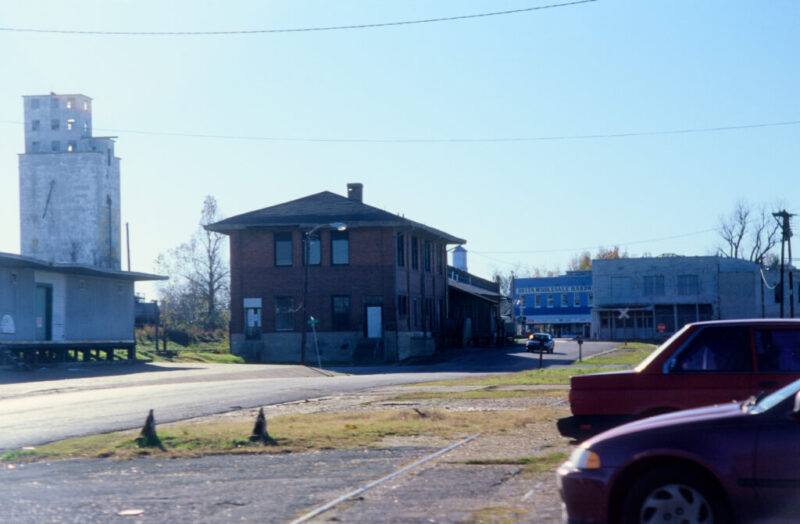
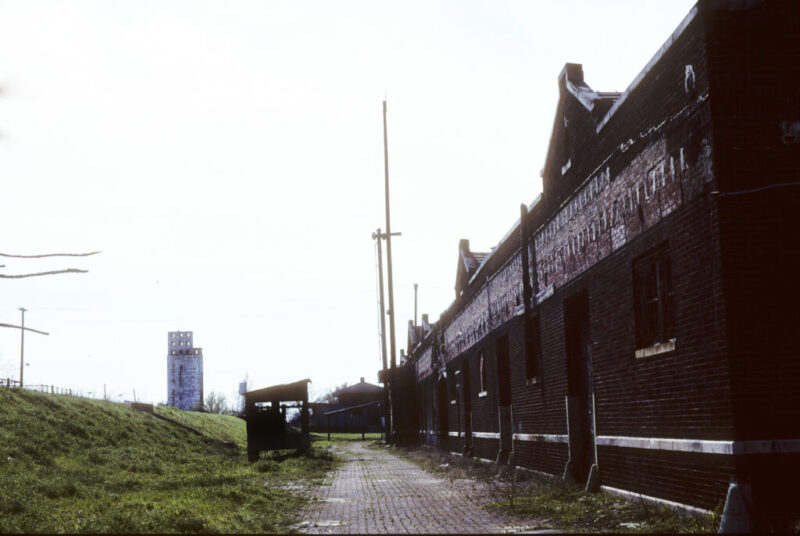
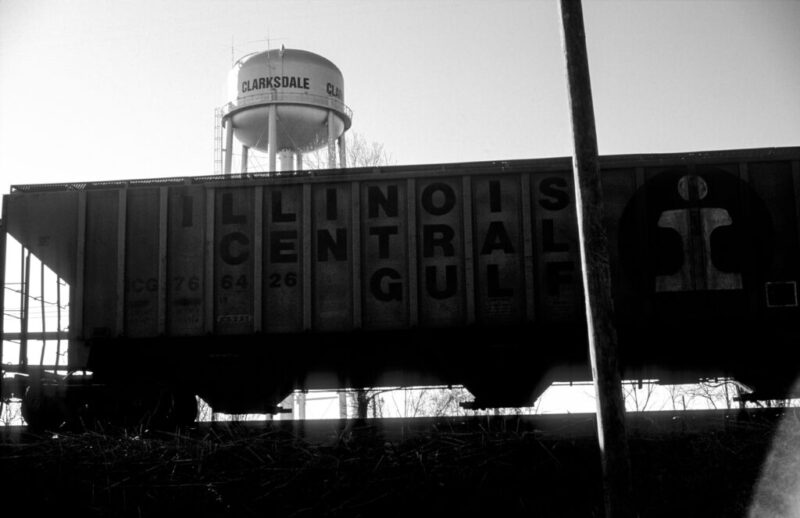
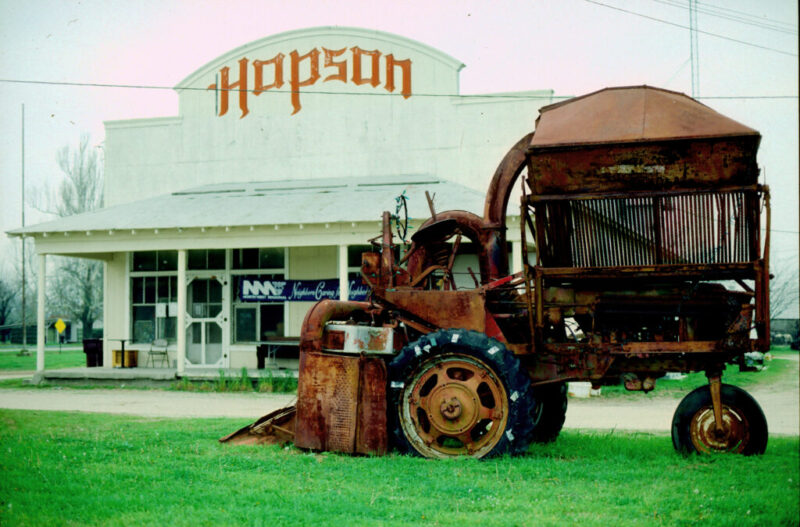
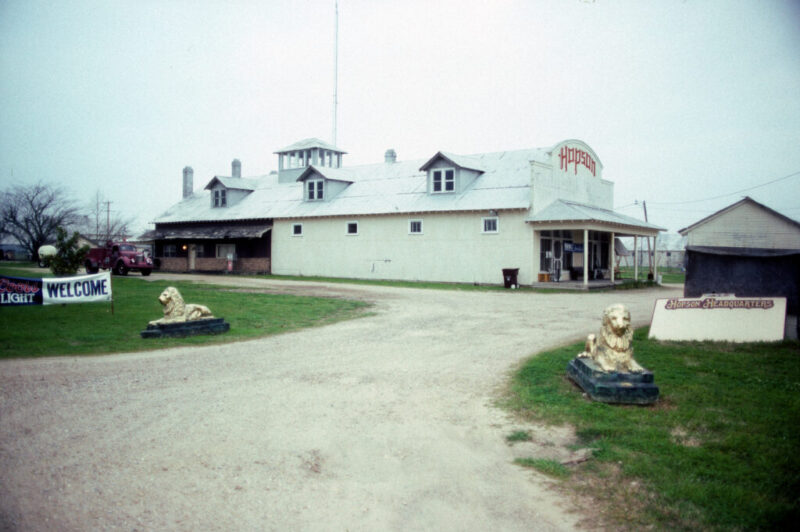
![A couple of older shotgun houses in the woods A couple of older shotgun houses in the woods [Photo: Tim Kendall © 1996]](https://i0.wp.com/mtzionmemorialfund.com/wp-content/uploads/2023/08/Old-Shotgun-Shacks-in-the-woods-scaled.jpg?resize=1165%2C1718&ssl=1)
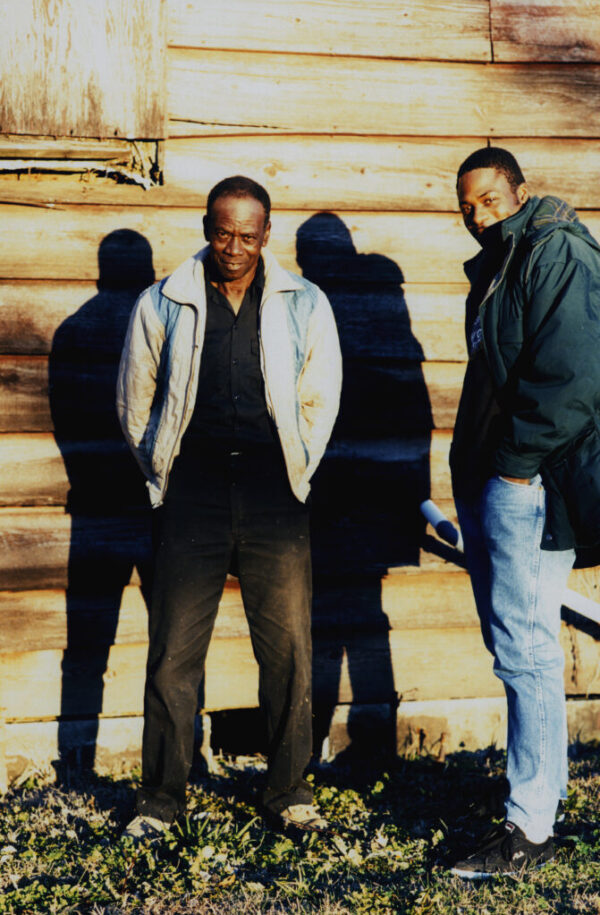
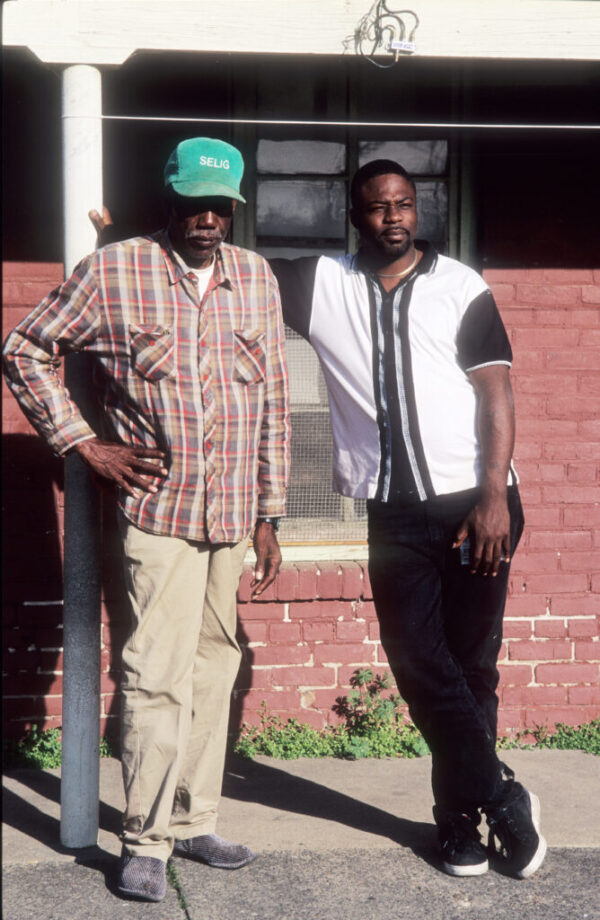
![Motel North Street Highway The Southern Inn on North Street Highway in Clarksdale, MS [Photo: Tim Kendall © 1996]](https://i0.wp.com/mtzionmemorialfund.com/wp-content/uploads/2023/08/Motel-North-Street-Highway-scaled.jpg?resize=1165%2C754&ssl=1)
![Terry and friends_Edit Terry "Big T" Williams and friends in Clarksdale, MS [Photo: Tim Kendall © 1996]](https://i0.wp.com/mtzionmemorialfund.com/wp-content/uploads/2023/08/Terry-and-friends_Edit-scaled.jpg?resize=1165%2C753&ssl=1)
![Hopson Commissary before it transformed into the Shackup Inn Hopson Commissary [Photo: Tim Kendall © 1996]](https://i0.wp.com/mtzionmemorialfund.com/wp-content/uploads/2023/08/Hopson-before-it-was-The-Shackup-Inn-scaled.jpg?resize=1165%2C776&ssl=1)























October 2, 2023 @ 11:11 am
Great read Tim !! Iconic photos !
Looking forward to Part 2 !!